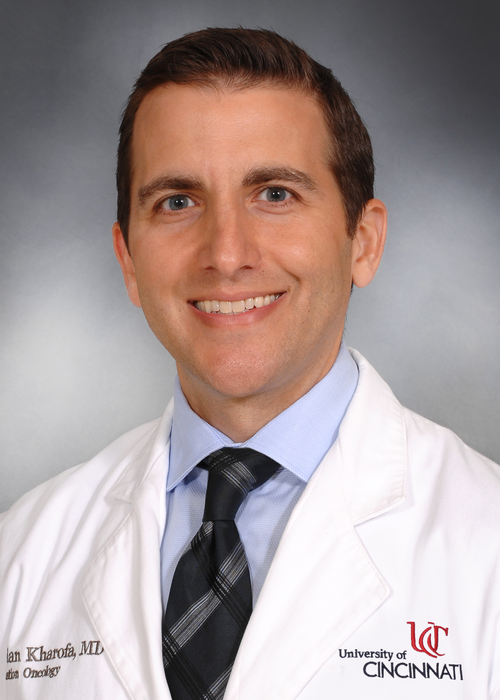Even as pancreatic cancer treatments improve, only about 9% of patients survive past five years. Researchers have searched unsuccessfully to find genetic differences that explain why some patients survive long term and some do not and have now shifted their focus to the gut microbiome.

Credit: Photo/University of Cincinnati
Even as pancreatic cancer treatments improve, only about 9% of patients survive past five years. Researchers have searched unsuccessfully to find genetic differences that explain why some patients survive long term and some do not and have now shifted their focus to the gut microbiome.
The microbiome is a term used for the collection of microbes, including microorganisms like bacteria, that live on or in the human body. Jordan Kharofa, MD, said there was little known about the microbiome of long-term pancreatic cancer survivors.
“There is emerging science suggesting that pancreas cancer survivors have a robust immune response in their tumors and data suggests the gut microbiome can influence immune response,” said Kharofa, University of Cincinnati Cancer Center physician-researcher and associate professor in the UC College of Medicine’s Department of Radiation Oncology. “We wondered if there was a relationship with the gut microbiome in pancreatic cancer survivors.”
Kharofa and his colleagues recently published findings in the journal Cancer that found several enriched species associated with enhanced tumor immune response in the microbiomes of long-term pancreatic cancer survivors.
The research team analyzed microbiome data from pancreatic cancer survivors and a control group of pancreatic cancer patients. They found long-term survivors’ microbiomes had increased levels of several specific bacterial species including Faecalibacterium prausnitzii.
“Little information exists to help us understand why some patients are cured from pancreatic cancer and unfortunately most are not,” he said. “These species may help to promote immune response to pancreas cancer but this has not yet been proven.”
While it is still unknown exactly how or if these bacteria directly contribute to patients’ long-term survival, the species have been previously been associated with improved response to immunotherapy for patients with metastatic melanoma or skin cancer.
“There is a growing understanding that the microbiome is a part of the normal immune response. The importance of the microbiome in response to immunotherapy drugs in melanoma and other cancer types is well established,” Kharofa said. “For the first time we are seeing that similar species are enriched in patients cured from pancreas cancer. We’re excited to explore this further and to evaluate if modulating the microbiome can be a therapeutic avenue in these patients.”
Kharofa said these bacterial species have not been linked to any specific diet, lifestyle or genetic makeup that would give insight on how to naturally elevate levels in the microbiome. Some researchers have begun testing fecal transplants using stool from long-term survivors, and Kharofa said the Cancer Center team is in the early phase of exploring microbiome modulation through oral administration of bacterial species.
The study was funded by the Give Hope Foundation. Other study authors include David Haslam, MD, Rachael Wilkinson, MS, Alison Weiss, PhD, Sameer Patel, MD, Kyle Wang, MD, Hope Esslinger, MPT, Olugbenga Olowokure, MD, Davendra Sohal, MD, Greg Wilson, MD, Syed Ahmad, MD, and Senu Apewokin, MD.
Journal
Cancer
DOI
10.1002/cncr.34748
Method of Research
Observational study
Subject of Research
People
Article Title
Analysis of the fecal metagenome in long-term survivors of pancreas cancer
Article Publication Date
21-Mar-2023
COI Statement
Syed Ahmad reports consulting fees from AbbVie. Senu Apewokin reports grant funding from National Institutes of Health Office of the Director and stock options with Seres Therapeutics. Jordan Kharofa reports independent contractor fees from Vulcan. Olugbenga Olowokure reports fees for data and safety monitoring from Bexion Pharmaceuticals. Davendra Sohal reports consulting fees from Incyte Corporation. The other authors declare no conflicts of interest.



